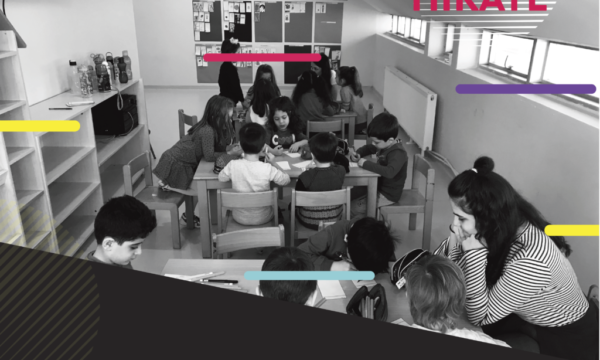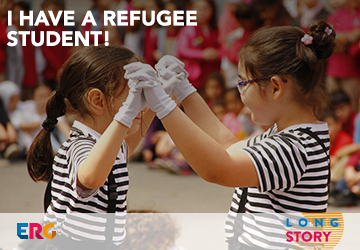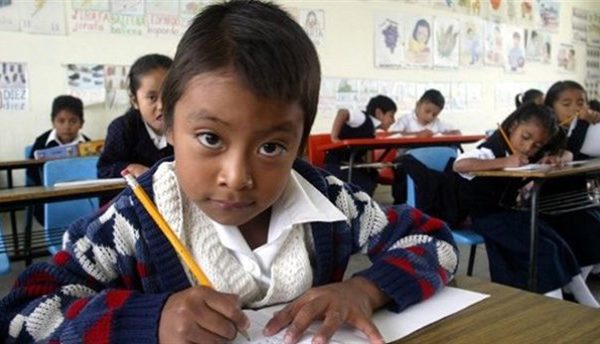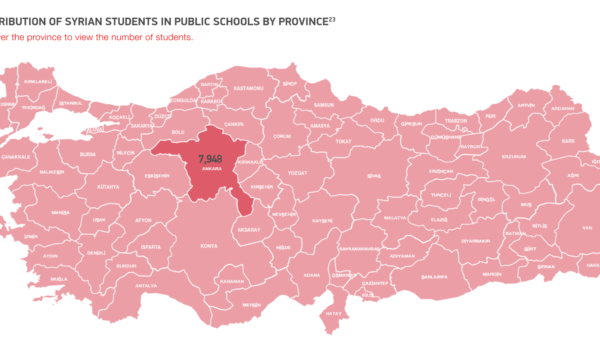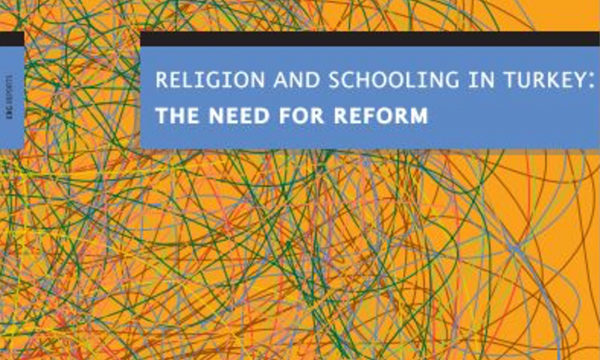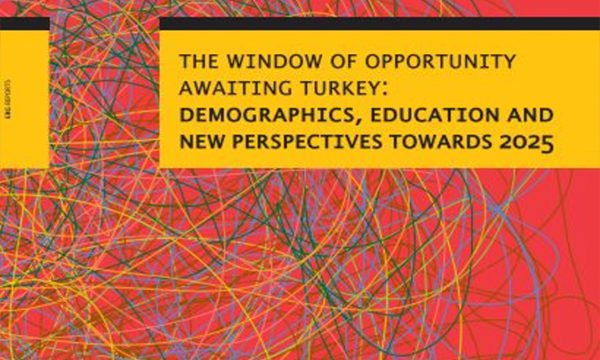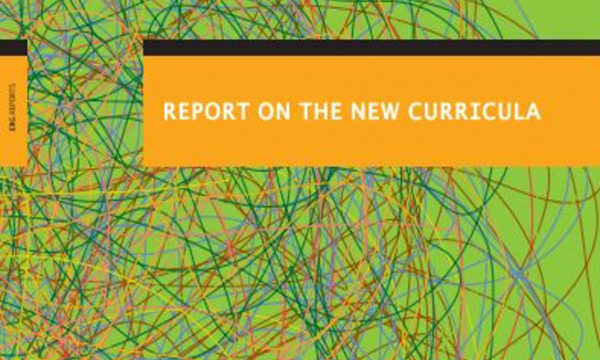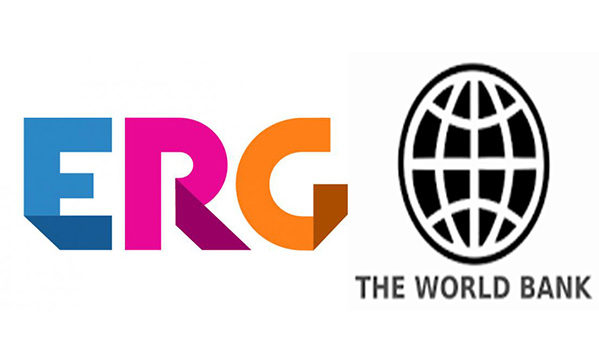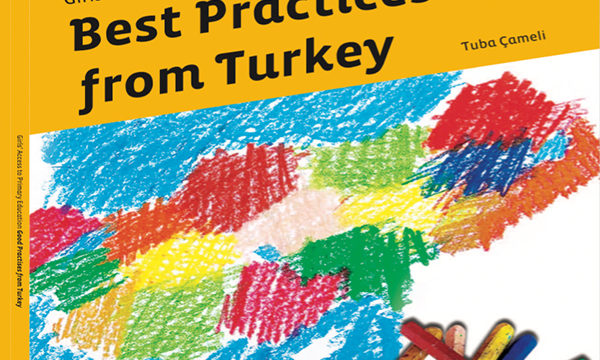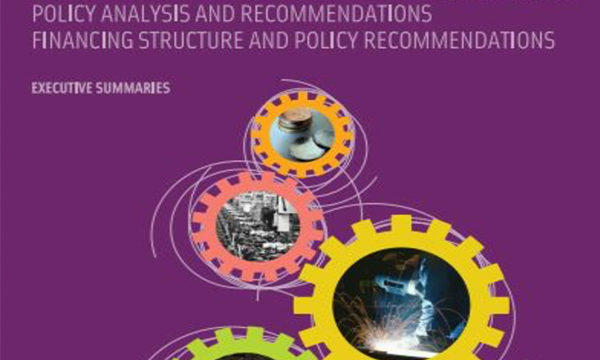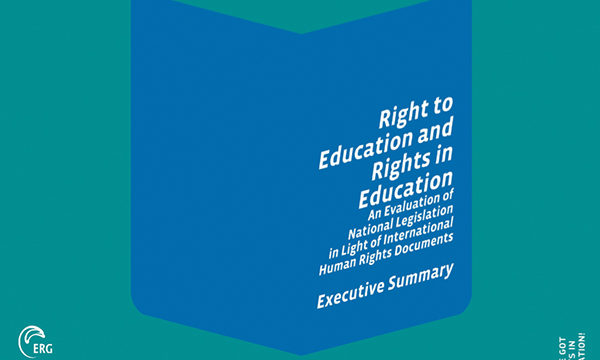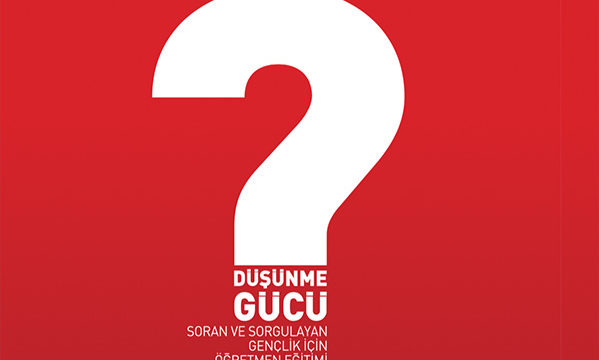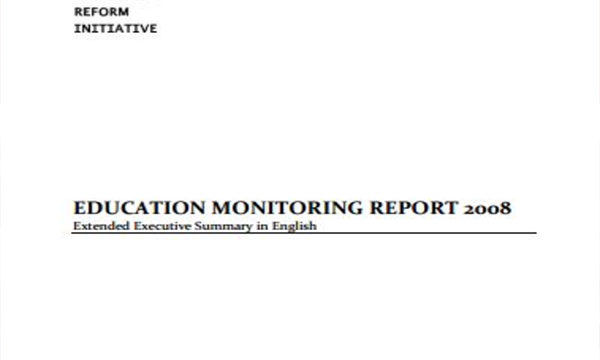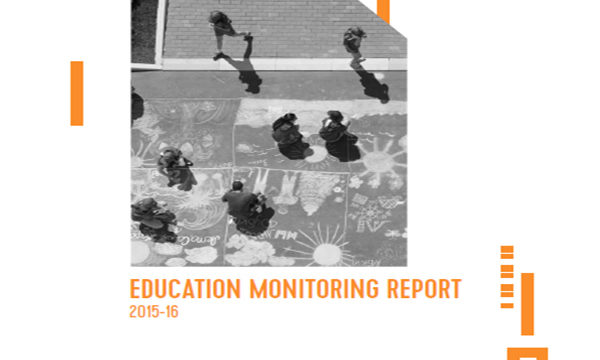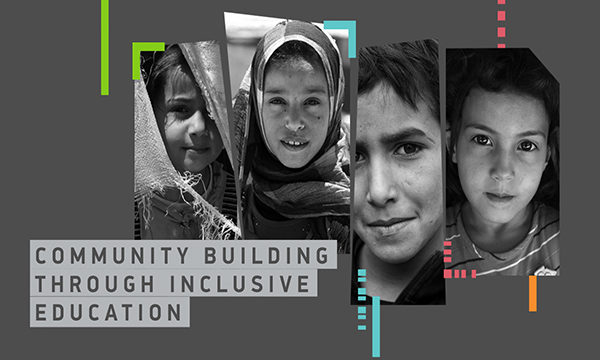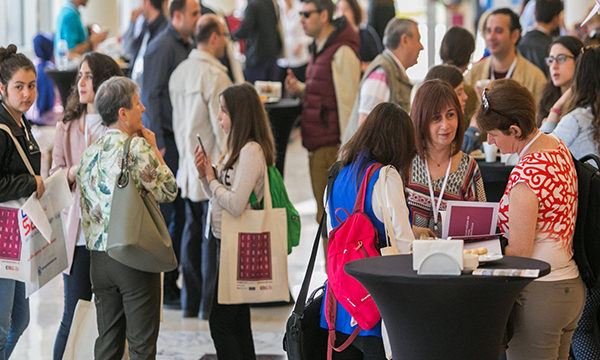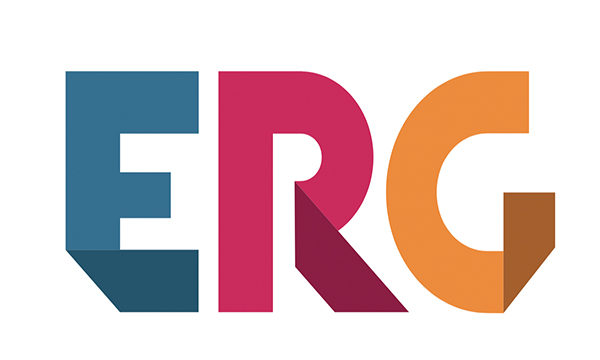Üstün Ergüder, head of the Education Reform Initiative (ERI), has said Turkish society needs to reform its higher education system to free it from the current centralized system in accordance with the demands of a global society.
“The Higher Education Law was prepared between 1980 and 1982 after a military takeover. The military rulers identified the problem of Turkey as political terror, and they saw the universities as the source of this terror. We have to have a different conception of a university now,” he argued.
In an interview with Today’s Zaman ahead of celebrations for Turkey’s Youth and Sports Day today, Ergüder said most of Turkey’s problems are related to the shortcomings of its education system, particularly the education of its youth.
He stressed that the current education system in Turkey is geared toward creating nation-building values that do not meet the demands of today’s society.
“Now we face the problem of needing more values for a democratic society. I look at the education system in terms of where it fits in a more globalized democratic society,” he said.
Turkey has always been proud of its large number of young people as the European population has been aging. But when we look closely at the research, we see that 32 percent of the 15-year-olds in Turkey have problems with reading comprehension and 52 percent of them cannot solve basic math problems. What do these findings tell us?
A young population can be an asset provided you can educate them and ensure that the quality of education does not vary significantly depending on gender, region and socio-economic conditions. The important problem in Turkey is education. We can turn the young population of Turkey into an asset through education. The statistics you mentioned show that we have an important quality problem. Some of our schools produce very able youngsters who can compete under global standards. But their numbers are limited. Our key target should be increasing the quality of education throughout Turkey regardless of age, ethnic group or socio-economic background.
Are you saying that such factors as socio-economic background, place of residence and gender are presently determinants of the quality of education in Turkey?
Yes, they are related to the quality or lack of quality in education in Turkey. Kids living in more developed parts of Turkey, kids who come from better-off families are more likely to get a better education. We have to change that. And it can be done if we set it as a goal that quality education should be given to all. That’s what we stress as the Education Reform Initiative.
Have you observed any progress in that regard?
Data show some progress, but it is not enough. There is a long way to go, and we have to be persistent and stubborn in following these goals. For the next 25 years, we have to keep education on top of Turkey’s agenda. And when I say education, there should be more emphasis on K-12 education up to the university gates.
You seem quite optimistic, even though the progress is not so pleasing. Why are you so optimistic?
I am optimistic because these issues are being discussed a lot more than before. More people realize that improving education in Turkey means a lot more than building schools. Private and philanthropic funds are being invested in human resources to improve the quality of teachers and improve the environment where kids study. These are heartening developments.
Research also shows that Turkey is behind when it comes to preschool education. What is the level of understanding in Turkey in the sense that preschool education adds a lot of value to a child’s learning abilities?
In terms of preschool education we are so behind most other countries. A few years ago only about 14 percent of children at preschool age were in preschool programs. There has been some improvement in recent years, but we are way behind European countries. Some European countries go up to 100 percent in early childhood education. Children are quite receptive to learning in early childhood. That is why it is so important. Research shows that children who receive a preschool education are more likely to be successful in life. Eventually, there will be more emphasis in this area because the Turkish economy is gradually requiring that both husband and wife join the workforce. The society is getting more ready for early childhood education.
‘Most of Turkey’s problems related to shortcomings in education system’
You have been an educator for some time, but let me ask you what made you get so actively involved in projects for making education a priority in Turkey?
I am a political scientist who did only political science until 1992. In 1992 I became the rector of Boğaziçi University. For eight years I was involved in the management of higher education. I had a chance to look at and reflect on macro-problems in education. By the time I finished my term as rector, I strongly believed that most of Turkey’s problems, be they social, political or economic, are very much related to shortcomings in the education system, particularly in the education of youth.
Could you elaborate on this idea?
I don’t adhere to the idea that quality education only means preparing youth for jobs in the marketplace. Education is more than that. It is about giving them certain values for living in a democratic society and living in a multicultural environment. So the education system has to go through a paradigmatic change.
Üstün Ergüder, an academic dedicated to quality education
Currently director of the İstanbul Policy Center at Sabancı University, he chairs the Education Reform Initiative (ERI) project funded by a network of Turkish foundations and universities. Ergüder is an active participant as an expert in the Institutional Quality Assessment process of the European Association of Universities, with its headquarters in Brussels.
Following studies in England and the United States, he joined the academic staff of Boğaziçi University in the 1970s. Prior to his appointment as rector of Boğaziçi University from August 1992 to August 2000, he chaired the department of political science and international relations. He also served as a member of the Turkish-Armenian Reconciliation Commission (TARC) between 2002 and 2006 and is the co-coordinator of the Greek-Turkish Forum (GTF).
What is so wrong with the current education system that it needs such a fundamental change?
It is geared to giving nation-building values. Now we face the problem of having more values for a democratic society. This is my political scientist angle. I look at the educational system in terms of where it fits in a more globalized democratic society.
What do you think is not good about having a nation-building philosophy in the education system?
Nations go through different stages. When you think of the 1920s, Turkey was a war-torn country and it was trying to get up on its feet. A nation, with the emphasis on being a Turk, was going to be created out of a heterogeneous empire. You had to build a nation and you had to instill the conception of nationality in a society in which people were not very aware of the concept of nationality. Now we are in the 21st century. Eighty years later, we don’t have the same problems, though some others say that the country still faces the danger of being divided. The education system has so far been successful when it comes to instilling the concept of nationality. But now we have a different paradigm in which Turkey has a bigger role in the globalized world and is trying to consolidate its democracy. The world has shrunk through technological developments, and people are becoming more aware of their different cultures and different ways of living. Turks need to be able to operate in a diverse environment while preserving their national identity.
When you were a rector, did you observe problems in the higher education system?
I realized that the root of the problem lies not in the higher education system but in the preschool and K-12 systems. This is where Turkey has to mobilize. For higher education, I have other ideas.
‘Military rulers saw universities as source of political terror’
What ideas do you have for higher education?
Higher education can move into a more self-financing mode. It has to adjust itself to a new vision. There is a need for a new vision of higher education. YÖK [the Higher Education Board] — with Law 2547 — has a vision. Actually, there is a coalition of visions in it. That is normal if you look at who prepared the Higher Education Law. It was drafted between 1980 and 1982 after a military takeover. The military rulers identified the problem of Turkey as political terror, and they saw the universities as the source of this terror. So one of their diagnoses was that the K-12 education system had not done enough to instill Turkish youth with the proper values, such as Atatürk’s revolutionary principles. The drafters of Law 2547 assigned higher education a political function: the function of creating national solidarity around the principle of the Turkish revolution. The drafters who wrote the YÖK law wanted to elevate the state of the higher education institutions through a very centralized system. Now 27 years have passed, and the YÖK law is still there. We have to sit back and think what we want from higher education. We have to have a different conception of a university now.
How different?
I propose a system that would emphasize the autonomy of institutions — that is, universities — and horizontal organization. Universities should be able to compete with each other. Dissemination of national values is the function of the K-12 system. Higher education should be geared toward knowledge production.
To whom do you propose this new higher education system? The Ministry of Education? YÖK? Do any of these institutions share your vision?
Turkey needs to have a debate on what form we want our higher education system and universities to take. Both YÖK and the Ministry of Education should be part of that debate. But the debate should not be limited to them. Other actors, stakeholders of higher education, should be involved in that debate.
The Ministry of Education has been involved in reforming the curriculum in schools for some time. Has it been completed?
No. These things are never completed. It’s like a moving target that keeps running away from you. A curriculum reform was done several years ago, and it should be monitored, meaning that it should be adjusted and changed according to new demands. The training of teachers is important in that regard, to change their attitudes. You give them a new curriculum, and they might be teaching it in the way that they like to teach it. So the impact of the curriculum reform may not be so good. We are now trying to push for the retraining of teachers. You will not be able to get much from a good book if you have a bad teacher. We recently started a project called “Youth Who Ask Questions and Probe,” geared toward training teachers.
You work with the Ministry of Education. How responsive is this ministry?
The Ministry of Education has been more open to dialogue with civil society organizations compared to earlier periods. If an organization is listening to civil society organizations, there will eventually be change. This is an encouraging development in Turkey. But we have to be patient. It is a process that will take a long time.
What kind of a youth would you like to see on this May 19?
My dream is to see youth who do not like slogans and do not like to analyze life with slogans. I’d like to see youth who always ask questions and who do not like ready-made answers. What I hated during my career was when somebody would come and ask for formulas to solve problems. What I can do is offer analysis and ideas. And others can have ideas, too. I’d like to see youth constantly searching for “truth” and not believing in ready-made formulas and recipes. They need to be ready to discuss and tolerate other people’s truths. Otherwise, I become despondent and, as a result, disappointed.
What kind of slogans do you think the youth use these days?
There are so many conspiracy theories around, and we seem to accept them without any questioning or investigation. Often word of mouth spread through gossip takes the place of data, knowledge and analysis. We can see sloganeering based on ideologies and beliefs in almost every walk of life.

